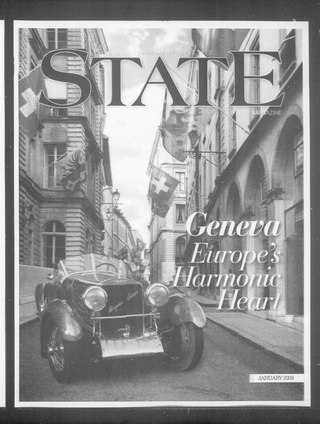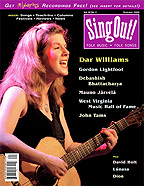
A magazine is a periodical publication, generally published on a regular schedule, containing a variety of content. They are generally financed by advertising, purchase price, prepaid subscriptions, or by a combination of the three.

Ladies' Home Journal was an American magazine last published by the Meredith Corporation. It was first published on February 16, 1883, and eventually became one of the leading women's magazines of the 20th century in the United States. In 1891, it was published in Philadelphia by the Curtis Publishing Company. In 1903, it was the first American magazine to reach one million subscribers.

The Woman's Exponent was a semi-official publication of the Church of Jesus Christ of Latter-day Saints that began in 1872. It published articles advocating for women's suffrage and plural marriage, in addition to poetry and other writings. Lula Greene Richards and Emmeline B. Wells were its editors until 1914, when the Exponent was dissolved. It was "the first long-lived feminist periodical in the western United States." While it had no direct successor, the Relief Society did launch its own magazine, the Relief Society Magazine, in 1915.
Alix Cecil Dobkin was an American folk singer-songwriter, memoirist, and lesbian feminist activist. In 1979, she was the first American lesbian feminist musician to do a European concert tour.
Feminist separatism is the theory that feminist opposition to patriarchy can be achieved through women's separation from men. Much of the theorizing is based in lesbian feminism.

The magazine Lilith is an independent, Jewish-American, feminist non-profit publication that has been issued quarterly since 1976. The magazine features award-winning investigative reports, first-person accounts, entertainment reviews, fiction and poetry, art and photography. Topics range from rabbinic sexual misconduct, to new rituals and celebrations, to deconstructing Jewish-American stereotypes, to understanding the Jewish stake in abortion rights.

Sing Out! was a quarterly journal of folk music and folk songs that was published from May 1950 through spring 2014. It was originally based in New York City, with a national circulation of approximately 10,000 by 1960.

Shafts was an English feminist magazine produced by Margaret Sibthorp from 1892 until 1899. Initially published weekly and priced at one penny, its themes included votes for women, women's education, and radical attitudes towards vivisection, dress reform, women's control of their sexuality, child care, and vegetarianism.

Azalea: A Magazine by Third World Lesbians was a quarterly periodical for Black, Asian, Latina, and Native American lesbians published between 1977 and 1983 by the Salsa Soul Sisters, Third World Wimmin Inc Collective. The Collective also published the Salsa Soul Sisters/Third World Women's Gay-zette.

The Circle was a lesbian journal collectively produced by the Sisters for Homophile Equality (SHE) in Wellington, New Zealand between December 1973 and 1986. The magazine was renamed Lesbian Feminist Circle in 1977, and continued to publish until 1986.

Amelia Jenks Bloomer was an American newspaper editor, women's rights and temperance advocate. Even though she did not create the women's clothing reform style known as bloomers, her name became associated with it because of her early and strong advocacy. In her work with The Lily, she became the first woman to own, operate and edit a newspaper for women.
Nikki Craft is an American radical feminist activist and writer.
Objectivist periodicals are a variety of academic journals, magazines, and newsletters with an editorial perspective explicitly based on Ayn Rand's philosophy of Objectivism. Several early Objectivist periodicals were edited by Rand. She later endorsed two periodicals edited by associates, and a number of others have been founded since her death.
Women's Art Resources of Minnesota (WARM) is a women's art organization based in the U.S. state of Minnesota. It was founded in 1976 as Women's Art Registry of Minnesota, a feminist artist collective. The organization ran the influential WARM Gallery in downtown Minneapolis from 1976 to 1991.

The Feminist Art Journal was an American magazine, published quarterly from 1972 to 1977. It was the first stable, widely read journal covering feminist art. By the time the final publication was produced, The Feminist Art Journal had a circulation of eight thousand copies, and ten thousand copies of the last edition were printed.

Ruth Mountaingrove was an American lesbian-feminist photographer, poet and musician, known for her photography documenting the lesbian land movement in Southern Oregon.
Kristin Lems is an American musician, singer-songwriter, feminist, and author/educator in the field of teaching English as a Second Language (ESL).










